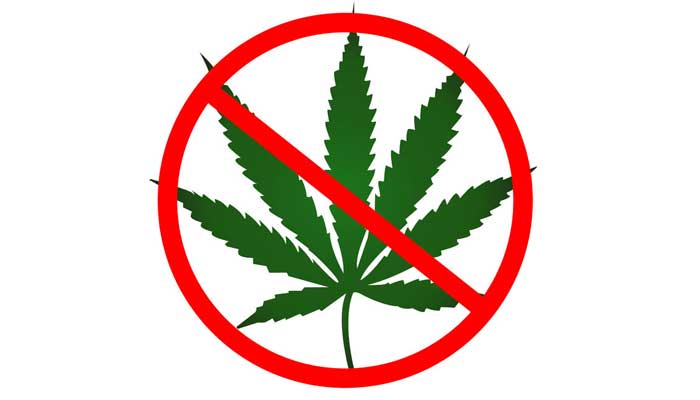Because we offer cannabis merchant account services, we’re entrenched in the legal vs. illegal debate and watching with great interest as more states (and countries) have chosen to legalize. There is currently a battle raging in a nearby city in coastal Massachusetts, which legalized cannabis in 2016, whether or not to open a dispensary. The issue has the city divided down the middle.
We’ve written frequently about the benefits of legal cannabis:
- Tax revenue for communities
- Employment opportunities
- Massive impact on farming
- Ripple effect on related industries: CBD, hemp, security and transport, construction of facilities
- Boon to banking and cannabis merchant account services
We feel there are many, many more benefits. As passionate as our colleagues on the pro-cannabis side are, the ‘keep cannabis illegal’ movement is equally as passionate. We understand the anti-cannabis stance and were curious to know all the real reasons behind the resistance – some reasons we could’ve guessed, others that somewhat surprised us.
Cannabis is a gateway drug
We won’t argue this point because for some users, it’s true. And it’s also true for alcohol. Naturally, parents want to protect their children and loved ones from drug use, and cannabis use can lead to harsher narcotics. For some users, cannabis is addictive, which adds another dimension to the ‘anti’ legalization stance.
We feel the key components here are education, parenting and communication – youths knowing the risks of cannabis before they choose to try it at the appropriate age (21).
Driving while impaired
In October, the Insurance Institute for Highway Safety found that automobile crashes are up 6 percent in the legal states of Colorado, Oregon, Nevada and Washington compared to illegal states. Thus, one of the leading arguments against cannabis legalization is users operating motor vehicles while high, coupled with law enforcement without a more effective method to test impaired drivers other than noting the physical signs. While breathalyzers identify drunk drivers through blood-alcohol content, there is no such test for cannabis as THC remains in a user’s blood for days, even weeks.
Law enforcement officers, particularly in legal states and countries, are trained to recognize the behavior of an impaired motor vehicle operator, but it is far from 100 percent reliable. There are also trials in progress involving the swipe of a cheek or tongue – whether it’s proven effective is months away.
Legal cannabis will hurt the economy
We think the opposite, as stated prior with an expected ripple effect on other industries, especially farming, banking and cannabis merchant account services. Nevertheless, anti-legalization types feel legal cannabis would have a negative impact on the economy. Their argument is compelling at the very least: One of the most powerful anti-cannabis movements, the Citizens Against Legalizing Marijuana (CALM), says that for every $1 collected in tax revenue for alcohol and tobacco, nearly $14 is spent on rectifying various social damages (what constitutes social damage we’re not sure). CALM believes this will worsen with cannabis legalization.
A strong opposition case can be levied, however: We recently read that the tax revenue, along with the eliminated need of enforcement against cannabis growth, sale and use, would add billions to the U.S. economy. Additionally, according to the Marijuana Policy Group, legal cannabis has resulted in more than 18,000 full-time jobs in Colorado while adding about 2.4 billion to its economy in 2015.
Secondary smoke, contact highs
For people around cannabis smokers, this issue has some credence. Regular smoking cannabis or tobacco is detrimental to one’s health, as well as the people in the immediate vicinity. Getting a ‘contact high’ is possible if the cannabis is potent enough and near another human being. During a recent visit to a legal dispensary in Las Vegas, however, a sales representative informed us that cannabis edibles (including infused drinks) and vaping products are outselling traditional cannabis smoking products, and she expects the trend to continue.
For now, a wait-and-see approach
At present, the U.S. does not have the luxury of looking at a particular state or even a country (Uruguay went legal in 2017 and Canada last October) to see the long term effects of legalized cannabis regarding most of the aforementioned issues – it is far too early in legalization. As far as the possibilities for cannabis merchant account services, U.S. banks and the credit card brands are watching. Having a proper banking system in place with cannabis merchant account services is a far better solution than straight cash or debit only – currently the only two options in the U.S.
Instabill has cannabis merchant account services
Currently, Instabill offers a debit card solution which enables customers and patients to easily load and reload funds to make payments; as well as a crypto currency solution in which cannabis merchants can reduce the mass amounts of cash coming into their dispensaries.
To find out more about our solutions, we encourage merchants to have a 10-minute conversation with a merchant account manager at 1-800-530-2444 today.


